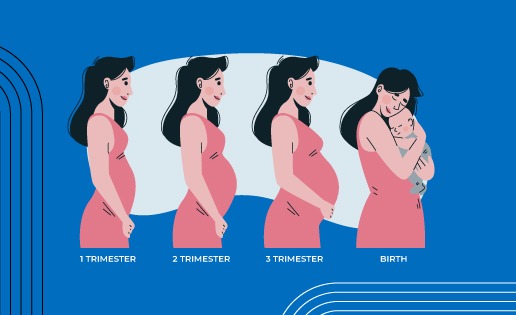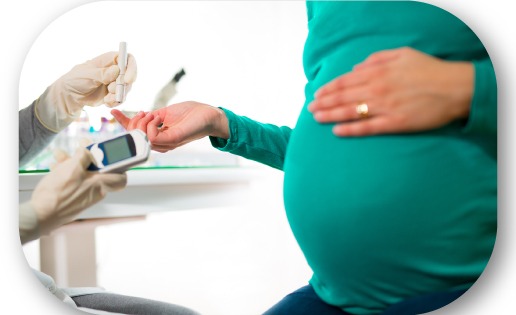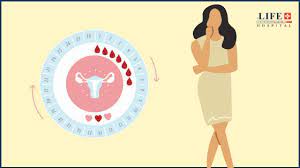Specialized center for Uterine Prolapse
Uterine prolapse occurs when the muscles and tissue in your pelvis weaken.
THE LIFE PLUS HOSPITAL Care is COVID 19 Safe
- Our Hospital premises are COVID safe
- Regular sanitization of clinic & hospital premises
- Immediate medical assistance through Online Consultation
Specialized center for Uterine Prolapse
Uterine prolapse occurs when the muscles and tissue in your pelvis weaken.
THE LIFE PLUS HOSPITAL Care is COVID 19 Safe
- Our Hospital premises are COVID safe
- Regular sanitization of clinic & hospital premises
- Immediate medical assistance through Online Consultation

Uterine Prolapse
Uterine prolapse occurs when the muscles and tissue in your pelvis weaken. The weakness lets the uterus drop down into your vagina. Sometimes it comes out through your vaginal opening.Many women with this condition have no symptoms. But if symptoms start, they may include:
- Leakage of urine
- Inability to completely empty your bladder
- Feeling of heaviness or fullness in your pelvis
- Bulging in your vagina or feeling like something is falling out
- Lower-back pain
- Aching or a feeling of pressure in your lower belly (abdomen) or pelvis
- Constipation, accidental leakage of stool, or straining when moving the bowels
- Bleeding or discharge
Let's Schedule Your Appointment
Uterine Prolapse

Uterine prolapse occurs when pelvic floor muscles and ligaments stretch and weaken and no longer provide enough support for the uterus. As a result, the uterus slips down into or protrudes out of the vagina.
Uterine prolapse can occur in women of any age. But it often affects postmenopausal women who’ve had one or more vaginal deliveries.
Mild uterine prolapse usually doesn’t require treatment. But if uterine prolapse makes you uncomfortable or disrupts your normal life, you might benefit from treatment.
Symptoms
Mild uterine prolapse generally doesn’t cause signs or symptoms. Signs and symptoms of moderate to severe uterine prolapse include:
- Sensation of heaviness or pulling in your pelvis
- Tissue protruding from your vagina
- Urinary problems, such as urine leakage (incontinence) or urine retention
- Trouble having a bowel movement
- Feeling as if you’re sitting on a small ball or as if something is falling out of your vagina
- Sexual concerns, such as a sensation of looseness in the tone of your vaginal tissue
Often, symptoms are less bothersome in the morning and worsen as the day goes on.
Overview
When to see a doctor
See your doctor to discuss your options if signs and symptoms of uterine prolapse become bothersome and disrupt your normal activities.
Causes
Uterine prolapse results from the weakening of pelvic muscles and supportive tissues. Causes of weakened pelvic muscles and tissues include:
- Pregnancy
- Difficult labor and delivery or trauma during childbirth
- Delivery of a large baby
- Being overweight or obese
- Lower estrogen level after menopause
- Chronic constipation or straining with bowel movements
- Chronic cough or bronchitis
- Repeated heavy lifting
Risk factors
Factors that can increase your risk of uterine prolapse include:
- One or more pregnancies and vaginal births
- Giving birth to a large baby
- Increasing age
- Obesity
- Prior pelvic surgery
- Chronic constipation or frequent straining during bowel movements
- Family history of weakness in connective tissue
- Being Hispanic or white
Complications
Uterine prolapse is often associated with prolapse of other pelvic organs. You might experience:
- Anterior prolapse (cystocele).Weakness of connective tissue separating the bladder and vagina may cause the bladder to bulge into the vagina. Anterior prolapse is also called prolapsed bladder.
- Posterior vaginal prolapse (rectocele).Weakness of connective tissue separating the rectum and vagina may cause the rectum to bulge into the vagina. You might have difficulty having bowel movements.
Severe uterine prolapse can displace part of the vaginal lining, causing it to protrude outside the body. Vaginal tissue that rubs against clothing can lead to vaginal sores (ulcers.) Rarely, the sores can become infected.
Our Gynecologists who are Treating the Diseases
Why The Life Plus Hospital?
 The Life Plus Hospital is COVID-19 safe
The Life Plus Hospital is COVID-19 safe
Your safety is taken care of by thermal screening, social distancing, sanitized clinics, and hospital rooms, sterilized surgical equipment, and mandatory PPE kits during surgery.
 Medical Expertise With Technology
Medical Expertise With Technology
Our Doctors spend a lot of time with you to diagnose your condition. You are assisted in all pre-assisted Hospitalisation process. We offer advanced laser and laparoscopic surgical treatment. Our procedures are USFDA approved.
 Assisted Surgery Experience
Assisted Surgery Experience
A dedicated Medical Coordinator assists you throughout the surgery journey from insurance paperwork, to free commute from home to hospital & back and admission-discharge process at the hospital.
 Post Natal Care
Post Natal Care
We offer free follow-up consultations and instructions including dietary tips as well as exercises to every patient to ensure they have a smooth recovery to their daily routines.
The Life Plus Hospital in Numbers
Years Of Expertise
Successful Surgeries
Consultation
Success Rate
Our Blogs
OUR GYNECOLOGY CENTER IN BANGALORE
Tell us about your problems and we’ll figure out the best treatment option for you.
Life Plus hospital
Women and Child Care Hospital in Indiranagar | LifePlus Hospital
At Life plus hospital, we offer a comprehensive range of women’s health services. The Department is managed by highly experienced lady gynecological doctors who offer specialized attention and compassionate care for women
Let's Schedule Your Appointment
Uterine Prolapse Faq's
Prolapse is a hernia of the vagina that a woman may feel as a bulge or pressure. This is referred to in many different ways. Sometimes it is called a “dropped bladder”, “dropped uterus,” “dropped vagina,” or “dropped rectum.” Your doctor may have also called this a cystocele, rectocele, or enterocele.
Prolapse may be uncomfortable, especially if you can feel the bulge after walking or standing for long periods of time. The good news is that prolapse is generally not life-threatening and many treatment options are available. For most women, the treatment they choose depends on how much they are bothered by their symptoms. Many conservative treatment options are available including dietary changes, pelvic floor muscle exercises, and physical therapy . One treatment for prolapse is a device inserted into the vagina called a pessary . Finally, some women are bothered by the prolapse enough to decide to have surgery .
For some women, their prolapse gets worse over time. For others, their prolapse will stay the same with conservative treatment options. Prolapse generally does not improve without surgery.














